
Fortune News | Oct 15,2022
May 4 , 2024
By BERSABEH GEBRE ( FORTUNE STAFF WRITER )
United Insurance has emerged as a powerhouse in the private insurance industry, boasting a notable surge in net profits, making it second only to Awash Insurance. The robust financial performance was supported by a substantial increase in earnings per share (EPS), outpacing competitors. The firm's focus on retaining a high percentage of its premiums is evident in its retention rate and increased gross written premiums.
United Insurance's ability to diversify its income streams through investments has paid off, with income from dividends, interest, and rent rising by 47.3pc to 255.6 million Br in its operation of the fiscal year 2023/24. It maintained a steady profitable pace amid industry forerunners while tripling its growth. United Insurance has recorded an 80.1pc net profit surge to 327.02 million Br, trailing Awash Insurance at 509.12 million Br. Its success has also been reflected in its industry-leading EPS, which jumped by 29.4pc to 479.85 Br.
The figure is higher than the private insurance industry average (34.2pc) and boasts a lead over generational peer Global Insurance (30pc). The dominance extends further, with a 12 percentage point advantage over Nyala and an eight percent lead compared to Nile. According to Board Chairperson Wondwossen Teshome, United's success came despite an economic climate marked by persistent inflation and foreign currency shortages.
"It had never been easy to navigate through such a testing operating environment," he said.
The growth was mainly driven by improved insurance business and investment activities. Total gross written premium soared by 58.4pc to 1.51 billion Br, of which 74pc was retained, marking a 3.5pc increase from the prior year.
"This is impressive," said the London-based financial analyst Abdulmenan Mohammed (PhD).
However, the company's success is tempered by surging expenses, as evidenced by a 47.6pc jump in direct underwriting expenses to 75.2 million Br and a 38pc rise in wages and general administration costs to 299.81 million Br. The increased retention rate was followed by more claims paid and provided for, which increased by 32.8pc to 463.54 million Br, resulting in a substantial amount of gross written premium used. United's claim expense was surpassed only by Awash, which led the private insurance industry with 836.3 million Br, while Africa and Nile ranked third and fourth with 447 million Br and 443.5 million Br.
"Management should pay close attention to risk management practices," cautioned Abdulmenan.
While United's operating expenses exceeded the industry average of 249 million Br, it remains competitive with peers. Nile Insurance's expenses were 207 million Br, and Nyala Insurance's at 266.2 million Br. However, a gap exists compared to Global Insurance, whose expenses were much lower, at 171.6 million Br, indicating that while United Insurance might need to address expense control, they are still within range of their primary competitors.
The industry recorded a loss ratio of 59pc as net earned premiums reached 12.8 billion Br against substantial net claims of 7.5 billion Br.
Soaring claims do little to faze the 12-year CEO Meseret Bezabih. A seasoned insurance professional with 26 years of experience, she attributed the rising operating costs partly to galloping inflation but emphasised her management's approach to balancing efficient customer service with prudent expense management.
"We're still working to lower costs," she told Fortune. "Our claims are also not excessively high."
Navigating the volatile sectors of marine and motor insurance remains a risk, particularly with issues like foreign currency shortages affecting marine coverage and fluctuating prices for motor vehicle parts impacting profitability.
According to Gizachew Fisseha, manager of United Insurance's Qirqos Branch, the underperformance of marine insurance was due to the foreign currency crunch faced by banks. He pointed to the rising unpredictability of motor insurance policies caused by price fluctuations in the spare parts market.
Since its corporation 31 years ago, with eight million Birr capital raised from 87 shareholders, United Insurance has expanded its branch network by seven, reaching 61. Its workforce has grown by 30 to 493 employees. The company also maintains a strong capital base and liquidity, illustrated by an 88pc increase in cash equivalents and a 68.4pc boost in paid-up capital to 840.6 million Br. This positioned the firm well ahead of its competitors, such as Global Insurance's 242.5 million Br, and sits comfortably close to Nyala's 830 million Br and Nile's 834 million Br. However, it trailed Awash (1.4 billion Br) and Oromia (870 million Br).
For Abera Mulat, a founding shareholder, recent shareholder meetings devoid of criticism of managment inadequacies reflect United Insurance's success. He is pleased with the rising EPS over the past two years and urged further diversification, similar to competitors venturing into agricultural insurance.
"They should leverage the expertise of international experts," Abera told Fortune.
United Insurance's income saw positive growth across multiple sectors. Commission income rose by 30.1pc to reach 96.99 million Br, while revenue from investments such as dividends, interest, and rent surged by an impressive 47.3pc to 255.6 million Br.
United's total assets have grown by 52.3pc to reach 3.29 billion Br, attributed mainly to the firm's focus on income-generating investments, disclosed Meseret. The company strategically allocated a substantial portion of its assets (66.4pc, slightly higher than the previous year's 63.1pc) across various investment categories. Around 1.68 billion Br was placed in deposit accounts, 221.5 million Br in equity, and close to 278.3 million Br in property investments.
"Our earnings from time deposits improved," the CEO told Fortune.
Liquidity analysis reveals an improvement for United Insurance. Its cash and cash equivalents have grown by 88pc to reach 96.24 million Br, reflecting the increased cash and bank balances to total assets ratio, rising from 2.37pc to 2.93pc. United's financial standing is solidified by its capital and non-distributable reserves, totalling 611.41 million Br. It accounts for a portion of capital (30.7pc) and total assets (28.3pc). Abdulmenan observed that this could represent a "strong capital and well-capitalised insurance company."
Editors' Note: This article was updated from its original form on May 8, 2024.
PUBLISHED ON
May 04,2024 [ VOL
25 , NO
1253]

Fortune News | Oct 15,2022
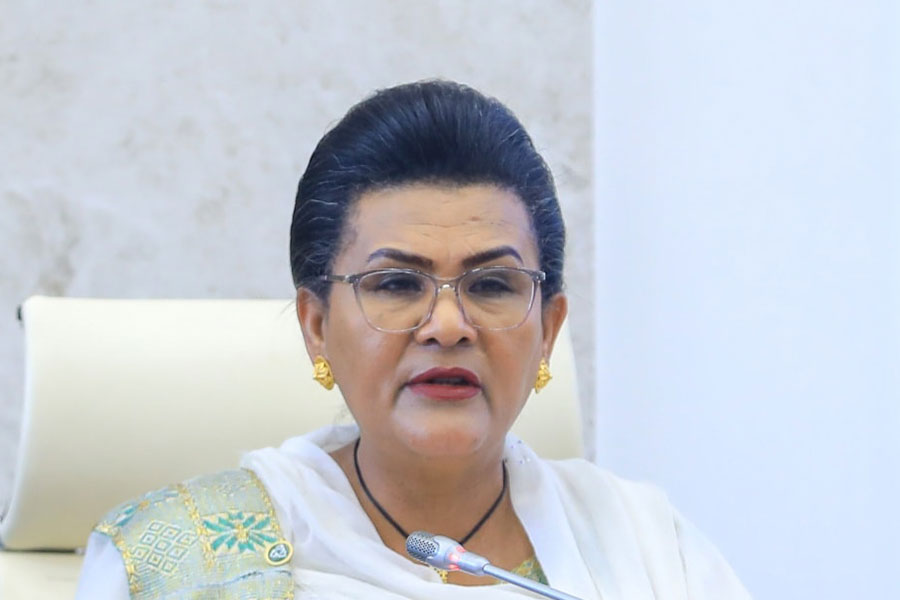
Fortune News | Jun 29,2025

Fortune News | Sep 01,2024

Fortune News | Feb 18,2023
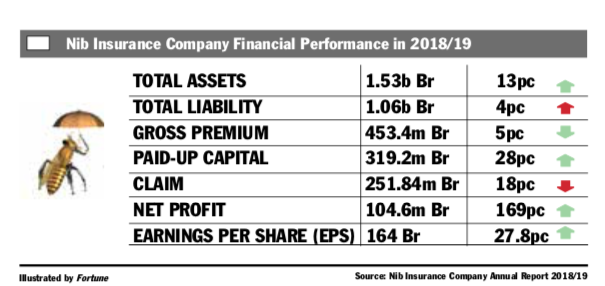
Fortune News | Dec 14,2019

Radar | Sep 03,2022

Commentaries | May 31,2025
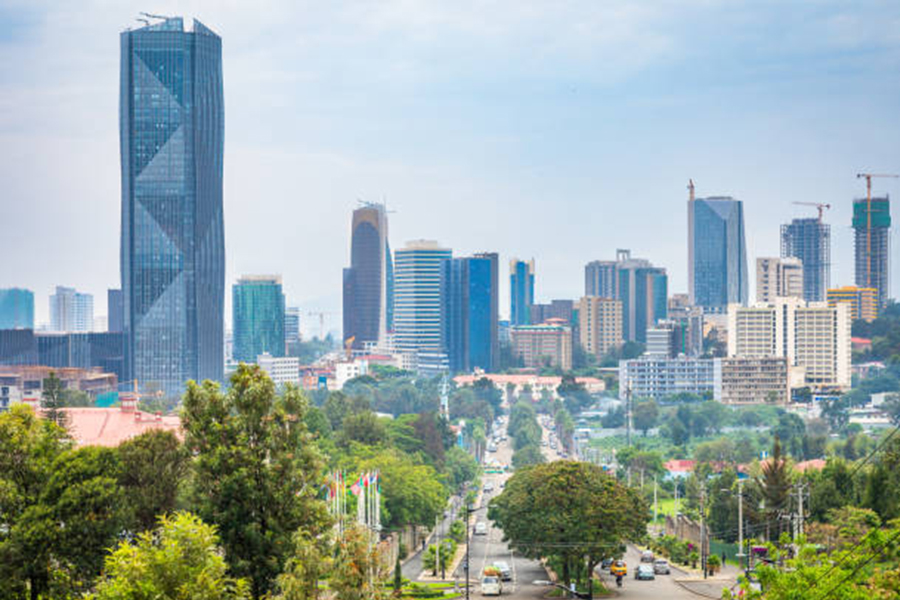
Fortune News | May 23,2025
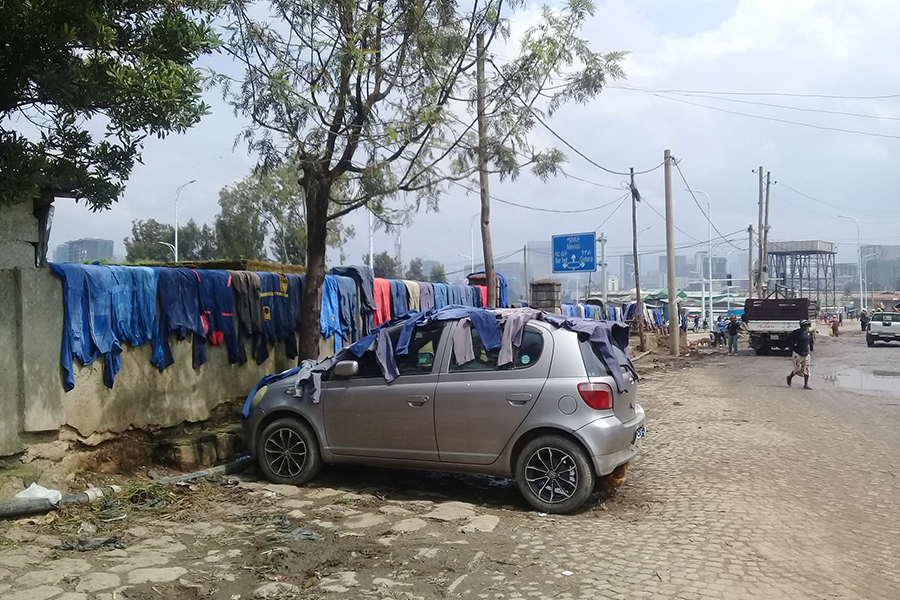
Radar | Sep 10,2022
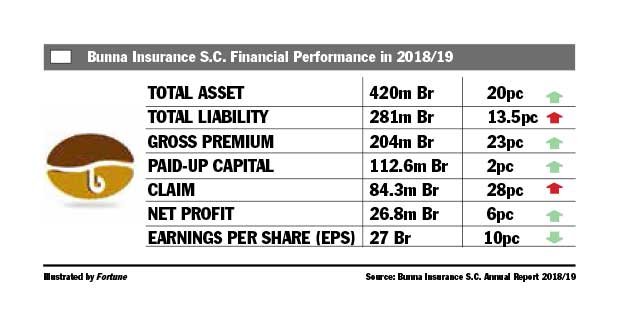
Fortune News | Dec 07,2019

Dec 22 , 2024 . By TIZITA SHEWAFERAW
Charged with transforming colossal state-owned enterprises into modern and competitiv...

Aug 18 , 2024 . By AKSAH ITALO
Although predictable Yonas Zerihun's job in the ride-hailing service is not immune to...

Jul 28 , 2024 . By TIZITA SHEWAFERAW
Unhabitual, perhaps too many, Samuel Gebreyohannes, 38, used to occasionally enjoy a couple of beers at breakfast. However, he recently swit...

Jul 13 , 2024 . By AKSAH ITALO
Investors who rely on tractors, trucks, and field vehicles for commuting, transporting commodities, and f...

Jul 5 , 2025
Six years ago, Ethiopia was the darling of international liberal commentators. A year...

Jun 28 , 2025
Meseret Damtie, the assertive auditor general, has never been shy about naming names...

Jun 21 , 2025
A well-worn adage says, “Budget is not destiny, but it is direction.” Examining t...

Jun 14 , 2025
Yet again, the Horn of Africa is bracing for trouble. A region already frayed by wars...